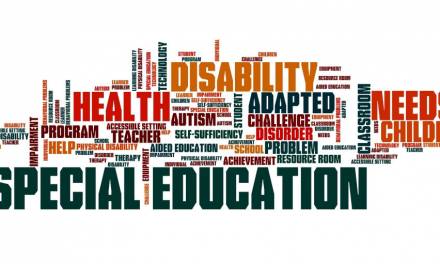Some schools are missing the opportunity to address extremism, due to a minority of schools not designating incidents of bullying as racist.
That is according to a report by Estyn, which identified that some school leaders do not see radicalisation and extremism as relevant to their school or area.
All schools have a duty to ensure pupils are not radicalised into terrorism. This legal duty is known as the Prevent duty. Click here for information on Prevent from the Department for Education.
What is extremism?
Extremism is holding an extreme political or religious view, according to the PSHE Association.
The Counter Extremism Strategy 2015 defines extremism as, “The vocal or active opposition to our fundamental values, including democracy, the rule of law, individual liberty, and respect and tolerance for different faiths and beliefs. We also regard calls for the death of members of armed forces as extremist.”
Extremism links closely with radicalisation and terrorism. Radicalisation is defined as, “the process by which a person comes to support terrorism and extremist ideologies associated with terrorist groups.”
Terrorism is defined as a violent action which endangers a person’s life, involves serious violence against a person, causes serious damage to a property, creates a serious risk to the public’s health and safety or something which interferes with or seriously disrupts an electronic system. You can find out more by reading the Terrorism Act 2006.
Causes of extremism
The following factors may be causes of extremist behaviour:
- A lack of identity, purpose or sense of belonging
- Demonising of others as different, leaving people to feel separated or insecure
- Defending their culture, way of life or beliefs
- Sense of injustice regarding the treatment of their culture or beliefs
- Pressure or influence from violent extremist groups, including through social media
- Dehumanisation – indifference to violence through violent games, radicalisation process dehumanising ‘others’
- Lack of understanding of faith
- Lack of critical assessment of information
- Poverty, unemployment, lack of education and the promise of a better life
Why are schools missing the opportunity to prevent extremism?
According to Jassa Scott, Strategic Director at Estyn:
The highest proportion (of referrals) are from the education sector.
Radicalisation violent extremism can happen in the most unexpected places. Schools should be tuned into bullying, in particular the use of racist language and inter-racial conflict between pupils which can indicate radical or extremist views.
Racist language, bullying and inter-racial conflict can be important indicators of extreme views.
The report has indicated that school leaders can be dismissive of extremism in their area. It recommends that schools make better use of the curriculum to increase pupil knowledge and spot influences that may put them at risk of exploitation.
The report also found there is a reluctance from parents and teachers to teach subjects such as Islam.
What should schools do when they recognise extremism?
It is important that schools recognise extremism and report cases to counter terrorism.
The ‘Prevent Duty’ was established under the Counter Terrorism and Security Act 2015. It states:
Responsible authorities have due regard to the need to prevent individuals from being drawn to terrorism in the exercise of their duties. This includes those working with children and young people.
The aims of the strategy are:
- To challenge the spread of terrorist ideology
- To support vulnerable people from being radicalised and drawn into terrorism
- To work with key institutions where there are risks of radicalisation
This process is known as Prevent Referral or Channel. The process states if there are reasons to believe a child or adult is likely to be involved in extremism (because they associate with known individuals or because they frequent a known location where these individuals operate), there is a need to refer to the Channel Panel.
Information should be reported to the police, using a police intelligence form. Prevent is a pre-crime process, and this therefore helps police undertake primary investigations and assess family risk. Not all cases require further action, however some cases will require action immediately.
In incidents where are additional safety concerns, a Safer Referral Form should be sent to Children’s Safeguarding Service , or an Adult Safeguarding Alert should be sent to Adult Social Care. In referring to Special Branch or Safeguarding Services, consent is required unless in exceptional circumstances.
The Channel Police Practioner will identify whether or not a representative from Children’s Safeguarding Service or Adult Social Care is required at the Panel. Where a child is already known to the local authority, the allocated social worker should attend the Panel.
Who is responsible for dealing with extremism in schools?
According to Radicalisation Research:
People in leadership positions in schools should make sure their staff understand radicalisation, and have the capability to deal with it and can implement it effectively. Schools should need to display productive cooperation with local Prevent staff, the police and other appropriate agencies.
Central to the duties above are the responsibilities of teachers who must understand what radicalisation and extremism are, and how they lead to terrorism. They must also understand what kind of extremism the government is interested in, and what measures are available to prevent people being drawn into terrorism.
The government is clear that extremism encompasses values and ideologies which may well be legal but could place people on a course to supporting illegal, violent extremist views.
How can EDLounge help tackle extremism in schools?
EDLounge Ltd is an online alternative provision, ideal for isolation units, PRUs and for students who have been excluded or for other reasons are not included in mainstream education. EDClass offers over 11,000 lessons, live teaching and marking facilities.
We have a number of in-built lessons, including ‘racial bullying and harassment – how to deal with it’, as well as a series of lessons on racist abuse.
The eyes-on learning facility on EDClass+, means any signs of extremism whilst using the system can be picked up on by the live teachers, this information can then be feedback to the school and reported to parents. All our staff are trained in spotting signs of extremism and reporting it to the relevant authorities.
We also provide safeguarding training through Keys to Safeguarding.
For more information on how EDClass can be used in exclusion and inclusion, call our team on 01909 568 338.









